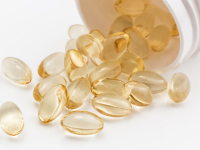
J. David Legan, PhD
Director of Science
David earned his Ph.D. in Food Technology from the University of Reading in the UK by modeling the ecology of mixed microbial populations, and then moved to Campden BRI in a variety of microbiological food safety research and client service roles. During that time, he was project lead for the Bacillus component of the UK’s pathogen modeling program. He moved again to Nabisco Research in New Jersey where he ran the corporate microbiology lab and developed a program of preservation technology development and microbial modeling. After the Kraft Foods acquisition, he moved to Chicago to work on Food Safety and Preservation research, and through modeling and validation studies:
- Optimized Oscar Mayer’s use of lactate and diacetate and their naturally cultured alternatives as Listeria-control agents in Ready to Eat meats
- Specified process conditions central to Oscar Mayer’s commercial launch of High Pressure Pasteurization of naturally cured RTE meats
David had responsibility for the Kraft cultures R&D group, developed a partnership to explore microwave sterilization leading to several patents, and led a program that developed an internal proprietary natural antimicrobial commercialized in several Kraft products. Technologies from his group supported approximately $4 billion in annual sales.
After years as a microbiology "client", he is now back in the "provider" role as Director of Science at Eurofins Microbiology Laboratories, Inc., by way of the Covance Food Solutions group based in Madison, WI, which he joined in 2016. In this role, he ensures appropriate method validation, explores new testing technologies, and fields multiple complicated food microbiology questions.
Products that his team has evaluated or developed and launched include:
- The 3M MDS platform in the Madison microbiology laboratory
- Flow cytometry for enumeration of probiotics
- Strain-level confirmation of probiotic identification using the polymerase chain reaction (PCR)
- Next-generation sequencing using the Oxford Nanopore Technologies GridION sequencing platform for microbial identification and microbiome analysis
Below are resources from David:
Postbiotics, defined as non-viable microbial cells, their components, or metabolites that confer health benefits to the host, represent a rapidly expanding frontier in microbiome research and functional ingredient development. Watch this webinar for a comprehensive look at the rapidly evolving field of postbiotics, combining cutting-edge science, global regulatory insights, and practical testing methodologies. Originally Aired on December 11, 2025.
In this blog, Dan Brouman traces MAHA’s path since December 2024, when the MAHA Caucus launched in Congress. Brouman also discusses MAHA’s future and its effects on food policy.
Selecting the right microbiological testing method isn’t just about speed or cost. It’s about risk management, product integrity, and regulatory compliance. Click to read about the strengths and limitations of different methodologies essential to avoid false negatives, regulatory citations, or costly recalls.
In the world of dietary supplements and food testing, unexpected results like failed specifications, out-of-spec (OOS) results, or surprising contaminant detections can be unsettling, but they’re not uncommon. Here’s how to navigate the process when results don’t align with expectations.
When it comes to dietary supplement testing, one seemingly small detail can have outsized consequences: specifying the correct vitamin form. Understanding and communicating the exact vitamin form in your product is not just a technical necessity, it’s a strategic imperative in ensuring accurate results, timely reporting, and regulatory compliance.
A supplement manufacturer added methylcobalamin (Vitamin B12) to a product, expecting to meet label claims. However, testing revealed only ~50% of the claimed amount, triggering an out-of-spec (OOS) result. Read to learn how Eurofins Supplement Testing resolved the unexpected results.
Switching oil sources, or developing a new product with an alternative oil, requires more than a label change. It demands a holistic view of how the oil behaves in your product, how it interacts with other ingredients, and how it holds up over time. Click to learn about the key considerations.
Protein analysis is typically based on a Nitrogen analysis and assumed factors to calculate protein. Since proteins are not the only source of Nitrogen, Protein analysis can be falsely inflated by a variety of ingredients and other food components. Check out this infographic to learn more about non-protein nitrogen.
In the world of dietary supplements, ingredient authenticity is directly linked to quality, compliance, safety, and consumer trust. With the complexity of botanical materials and the limitations of individual testing techniques, relying on a single method for identity verification can be risky. That’s where orthogonal methods come in. Read to learn more.
Photostability testing is crucial for ensuring the safety, efficacy, and quality of products. While there are not specific requirements, the FDA makes it clear it is recommended for all products susceptible to light. Check out our infographic about the importance of photostability testing in OTC products.












